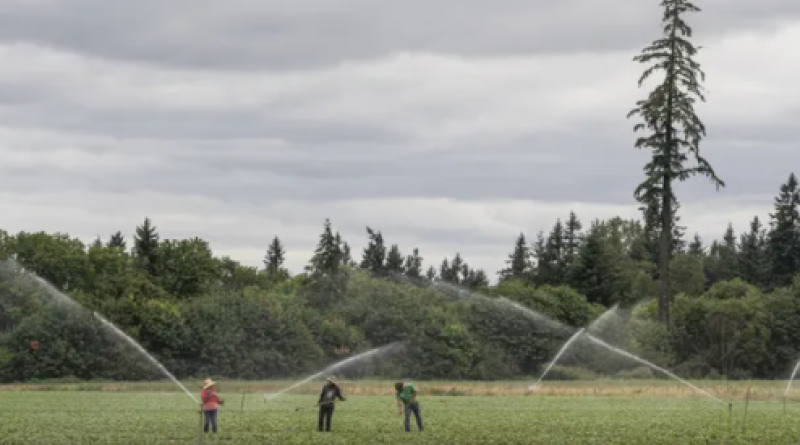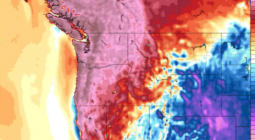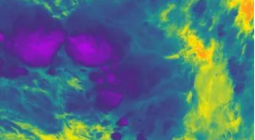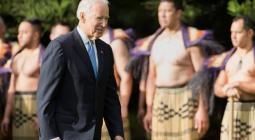A farm worker and a father: victims of the Pacific north-west’s heatwave

Extreme weather killed hundreds in the US and Canada and experts say heat could have played a role in many more deaths.
The intense heatwave in June and July in the US and Canada has already caused hundreds of deaths, with numbers still expected to rise.
Oregon’s official death toll by Friday was at least 79 people, as the temperatures hit 116F in Portland. Washington state reported at least 20 people dead because of heat, a number that officials said was expected to increase. In British Columbia, Canada, at least 486 sudden deaths were reported during a five-day brutal heatwave.
Like many natural disasters, the brutal and deadly heat has not affected all people equally, but instead exposed already existing rifts in society. It impacts most harshly elderly people, the already infirm, the poor and those whose jobs cannot be moved indoors.
Here are the stories of a few of the people who have lost their lives:
James H Anfeldt, 47, was unresponsive in his trailer at the Panelview RV Park in Hermiston at about 6.30pm last Thursday, according to the Umatilla, Oregon, medical examiner. Anfeldt was a father of five who worked as a construction worker. His six-year-old son, who was with him in the hot trailer, thought he was asleep and went to a neighbor for help when he couldn’t wake his father.
Anfeldt had hypertension, a condition that made him vulnerable to the heat, the medical examiner said. The cause of death was external hyperthermia – overheating.
The medical examiner told local media that the man had “worked all day on a construction project in Pendleton and was already dehydrated and goes to sleep without AC and pretty much collapses headed to the bathroom.”
In Spokane, Washington, Robert L Hunt, 68, and Andre Pharr, 36, were found dead in upper-floor apartments in a building. The cause and manner of death for both men are listed as pending. It’s unclear if air conditioning units were in the apartments but they weren’t turned on if they were present, the county medical examiner said.
Juliana Leon, 65, died in an overheated vehicle in Seattle’s Maple Leaf neighborhood on Monday, according to Seattle police. Medics attempted life-saving measures “for some time,” but the woman was declared dead at the scene, according to local news reports.
The heatwave also extended into British Columbia, shattering Canadian temperature records. An elderly couple in Lytton, British Columbia, were seeking shelter from a wildfire when a power line fell on them and killed them, according to the Vancouver Sun. BC Wildfire reported 87 active fires as of Thursday afternoon, including the Lytton Creek fire and eight other fires of note, three of which were also in the surrounding region.
When temperatures soared into triple digits, people who were spending time outdoors suffered.
As temperatures reached 111F degrees in Bend, Oregon, two men at a homeless camp died, according to the Bend Bulletin. Outreach organizations picked up dozens more and took them to cooling shelters.
In Oregon, a farm worker in St Paul, about 30 miles south of Portland, died Saturday, during the heatwave, a spokesperson for the state occupational safety and health told local media. The man was working on a crew moving irrigation lines when he was found unresponsive in the field.
The heat also changed interactions between neighbors, as more people were stuck inside. Debra Moore, 68, died Monday after falling on a sidewalk in Enumclaw, Washington. Enumclaw police reported that she was in town visiting someone at the time, and had “pretty significant, pre-existing medical conditions” and usually walked with a cane or walker, though it was still in her car when she slipped and fell.
Normally, the police added, neighbors might have had their blinds open and spotted her quickly, but had closed them on Monday to keep the sun out. “She wasn’t discovered there for quite a while, so she was laying there in the heat.”
As people tried to find ways to beat the heat, they often took to the water – which also led to more water-related deaths than usual.
Multnomah county deputies said Jose Pascual, 21, of Portland, disappeared underwater at Dabney state park on Tuesday, according to media reports. He was reportedly not wearing a lifejacket at the time.
The search for Pascual has turned into a recovery effort, officials said.
Last Monday, rescuers recovered the body of a four-year-old boy from the Skykomish River in Washington who had fallen out of a kayak. In Oregon, sheriff’s deputies said a 77-year-old man drowned on Saturday at Crescent Lake. Witnesses said the man had been in the water for about an hour before he was found by divers who were recreating in the area.
Researchers point out that the early deaths attributed to heatwaves often represent a small portion of the mortality caused by the extreme weather. While heatstroke can kill directly, many more die of cardiac events, respiratory problems or kidney disease – underlying conditions exacerbated by heat. The heat’s role in many of their deaths may not be examined for months.
5 July 2021
The Guardian




